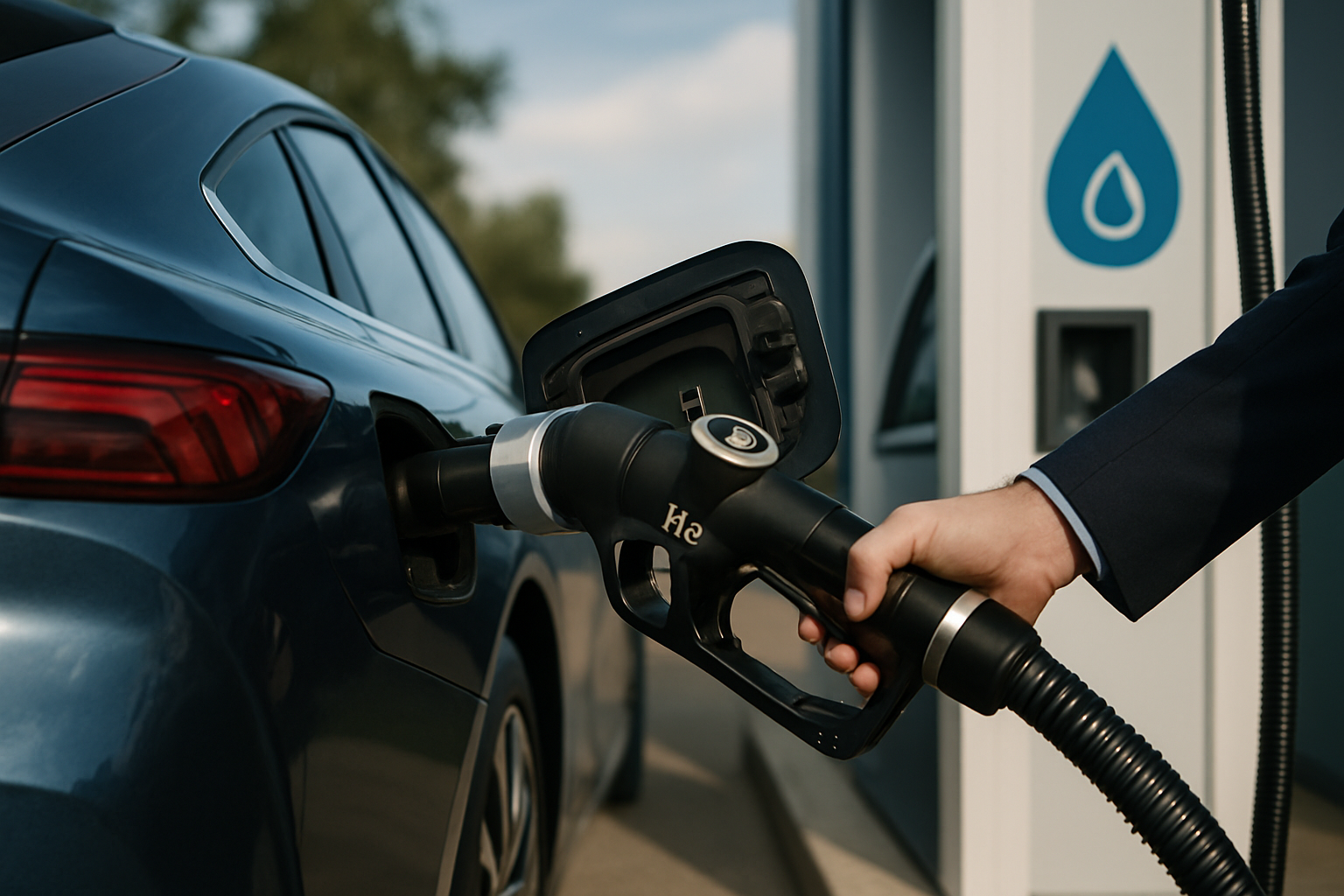Hydrogen Fuel Cell Vehicles: The Future of Clean Transportation?
In a world grappling with climate change and energy sustainability, the automotive industry stands at a crossroads. While electric vehicles have garnered significant attention, another contender quietly emerges as a potential game-changer: hydrogen fuel cell vehicles. These innovative machines promise zero emissions, quick refueling times, and long-range capabilities. But can they truly revolutionize the way we think about clean transportation? Let's dive into the world of hydrogen-powered cars and explore their potential to reshape our roads.

A Brief History of Hydrogen in Automotive Applications
The concept of using hydrogen as a fuel source is not new. In fact, it dates back to the early 19th century when Swiss inventor François Isaac de Rivaz created an internal combustion engine powered by hydrogen. However, it wasn’t until the late 20th century that automakers began seriously exploring hydrogen fuel cells for vehicles. The 1990s saw several prototypes emerge, with companies like General Motors and Toyota leading the charge. These early attempts paved the way for more refined models in the 21st century.
Current State of Hydrogen Fuel Cell Technology
Today, hydrogen fuel cell vehicles are no longer just prototypes. Several major automakers have launched production models, with names like the Toyota Mirai, Hyundai Nexo, and Honda Clarity Fuel Cell making waves in select markets. These vehicles boast impressive specifications, offering ranges of over 300 miles on a single tank of hydrogen and refueling times comparable to conventional gasoline vehicles. The technology has matured significantly, addressing many of the early concerns about durability and performance.
Infrastructure Challenges and Solutions
One of the biggest hurdles facing hydrogen fuel cell vehicles is the lack of refueling infrastructure. Unlike electric vehicles, which can be charged at home or at widely available public charging stations, hydrogen refueling stations are still relatively scarce. However, several countries and regions are making concerted efforts to expand hydrogen infrastructure. California, for instance, has committed to building a network of hydrogen stations, while countries like Japan and Germany are also investing heavily in hydrogen infrastructure development.
Environmental Impact and Sustainability
The environmental credentials of hydrogen fuel cell vehicles are compelling. With zero tailpipe emissions, they offer a clean alternative to internal combustion engines. However, the environmental impact of hydrogen production must be considered. Currently, most hydrogen is produced from natural gas through a process called steam methane reforming, which does generate carbon emissions. The key to truly sustainable hydrogen fuel cell vehicles lies in green hydrogen production methods, such as electrolysis powered by renewable energy sources like wind or solar.
Cost Considerations and Market Viability
As with any new technology, cost remains a significant factor in the widespread adoption of hydrogen fuel cell vehicles. Currently, these vehicles come with a premium price tag, largely due to the sophisticated technology and low production volumes. The cost of hydrogen fuel itself is also higher than conventional fuels in many regions. However, as production scales up and technology improves, experts predict that costs will decrease significantly. Government incentives and subsidies also play a crucial role in making hydrogen vehicles more accessible to consumers.
The Role of Hydrogen in Commercial Transportation
While passenger vehicles garner much of the attention, hydrogen fuel cell technology shows particular promise in the commercial transportation sector. Long-haul trucks, buses, and even trains could benefit from the long range and quick refueling capabilities of hydrogen fuel cells. Several companies are already testing hydrogen-powered trucks, with the potential to significantly reduce emissions in the logistics industry. The scalability of fuel cells makes them well-suited for these larger vehicles, where battery electric options may face limitations.
Comparing Hydrogen and Battery Electric Vehicles
The debate between hydrogen fuel cell and battery electric vehicles often takes center stage in discussions about the future of clean transportation. Both technologies offer zero-emission driving, but they have distinct advantages and challenges. Battery electric vehicles benefit from a more developed charging infrastructure and lower operating costs, while hydrogen fuel cell vehicles offer quicker refueling and potentially longer ranges. The ideal solution may involve a mix of both technologies, with each serving different market segments and use cases.
Future Prospects and Technological Advancements
The future of hydrogen fuel cell vehicles looks promising, with ongoing research and development aimed at improving efficiency, reducing costs, and enhancing performance. Advances in fuel cell design, hydrogen storage technologies, and green hydrogen production methods are all contributing to the technology’s evolution. As automakers continue to invest in hydrogen technology and governments support its development, we may see a significant increase in hydrogen vehicle adoption in the coming decades.
In conclusion, hydrogen fuel cell vehicles represent a fascinating and potentially transformative technology in the automotive world. While challenges remain, particularly in terms of infrastructure and cost, the unique advantages of hydrogen power make it a compelling option for clean transportation. As we navigate the complex landscape of sustainable mobility, hydrogen fuel cell vehicles may well play a crucial role in shaping the future of how we move. The road ahead for this technology is undoubtedly exciting, and its potential impact on our environment and energy landscape is profound.





